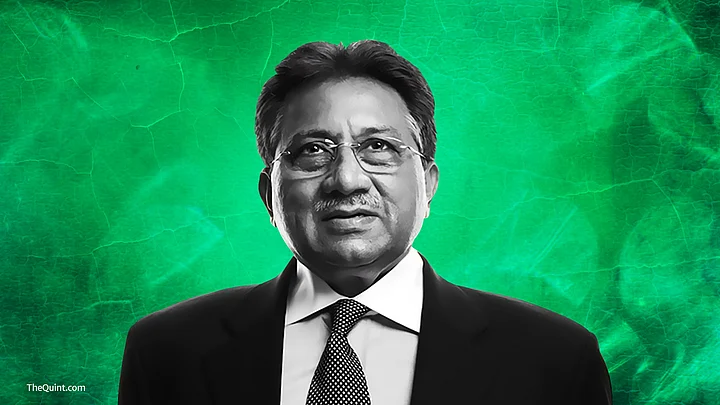Pakistan's former military dictator General (retd) Pervez Musharraf was admitted to a hospital on Monday in Dubai after he developed "heart- and blood pressure-related" complications, according to media reports.
The 76-year-old former president, who is living in Dubai in self-exile, was admitted to the Dubai American Hospital on a stretcher, citing "emergency treatment requirement" which was later confirmed by sources in his All Pakistan Muslim League (APML) party, Dawn News reported.
“He has some serious health issues and lately had been complaining of some pain in the chest, and anxiety,” said the party’s spokesman.
"The doctors visited him at his place of stay and recommended immediate admission to avoid any further complications. The former president has undergone a few tests which will help determine the state of his health," he said.
Dr Muhammad Amjad, Musharraf's close aide and the ex-chairperson of the APML, said that the former president was rapidly becoming weaker due to an unknown disease, which is why he was unable to return to Pakistan to face the treason case, Geo News reported.
In May, Musharraf’s health deteriorated and he was rushed to a hospital in Dubai. Before that in January also he was shifted to a hospital when he fell sick.
The previous Pakistan Muslim League-Nawaz (PML-N) government had filed the treason case against the former president in 2013 over the imposition of extra-constitutional emergency in 2007.
Musharraf, who has been living in Dubai since March 2016, is facing treason charges for suspending the Constitution in 2007, a punishable offence for which he was indicted in 2014.
The former army chief left for Dubai for medical treatment and has not returned since, citing security and health reasons.
Musharraf became Pakistan's first army chief to be charged with treason when he was indicted on 31 March, 2014. He pleaded not guilty to five charges and dismissed them as being politically motivated.
A special court on 19 November concluded the trial proceedings in the case against Musharraf for declaring a state of emergency on 3 November, 2007, and had said that a verdict would be announced on 28 November.
However, the Islamabad High Court stopped the special court from announcing its judgement on November 28.
The special court in Islamabad had ordered the former military ruler to record his statement in the case by 5 December.
If found guilty, Musharraf could be sentenced to death or imprisonment for life.
(At The Quint, we question everything. Play an active role in shaping our journalism by becoming a member today.)
